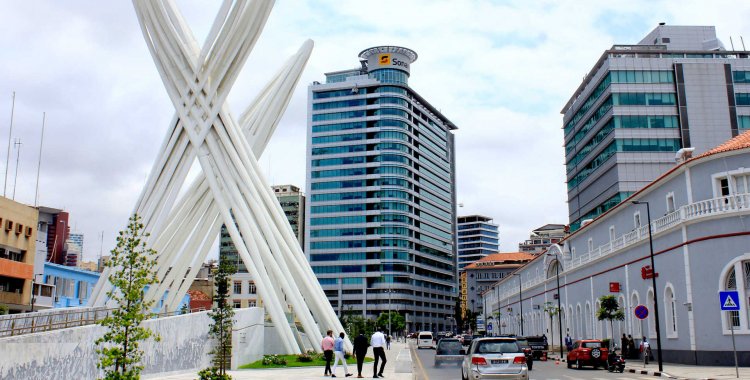It is in this dimension of reflection that we can ask ourselves, what to expect from the Angolan Debt and Stock Exchange (“BODIVA”) in the new market paradigm, fundamentally marked by the “trust” deposited by the largest company in the country through the recent admission of its ordinary bonds for trading on the BODIVA Private Bond Exchange Market (“MBOP”).
Stock Exchange is trust and only that. Now, when we consider the Stock Exchange as a synonym for confidence, we are assuming that the entry of investors or companies into the market is essentially the result of the confidence that the market presents. That is, the greater the trust transmitted by a Stock Exchange, the greater the market coverage and consequently the expansion of the base of investors and companies with securities admitted to trading (shares and bonds).Em qualquer mercado o processo de admissão de valores mobiliários à negociação por parte da maior empresa, simboliza o prelúdio de um novo paradigma. É nesta componente que podemos olhar para os seguintes casos:
1. In December 2019, the largest oil company in the world, SAUDI ARAMCO, carried out the largest IPO (Initial Public Offering) in history through the dispersion of 1.5% of its share capital on Tadawul (Saudi Arabia Stock Exchange), having raised around USD 119 Billion
2. In 2010, the most valuable company in South America, PETROBRAS, issued new shares at the time on the São Paulo Stock Exchange (BOVESPA), having raised around USD 66.9 billion and culminating with BOVESPA as the second largest exchange resulting from said event.
Note that for the two cases listed above, they are companies in the same sector as SONANGOL EP and that despite being an issue of shares, it is important to highlight that any issue of securities carried out by the largest company in a given country in Stock Exchange of the same country, presupposes the attribution of a “certificate” of trust and transparency that said Stock Exchange presents.
But why do we discuss cases from other realities and what they have in common with the Angolan market? In fact, we can say that the Angolan market in terms of magnitude is beginning to move towards consolidating the premises that make up the more mature markets, fundamentally marked by the admission of ordinary bonds to the Stock Exchange, carried out by SONANGOL EP.
Evidently, there are still many challenges in the sphere of financial education, without prejudice to the increasing recognition of the positive correlation between the expansion of the investor base and public offers in the market, essentially resulting from the opening of custody accounts, given the appetite for these end up creating among Angolans.
However, because of the challenges identified in the financial education component, few Angolans currently have a clear idea of what SONANGOL EP meant, admitting ordinary obligations to negotiation and more, there is still a nucleus to consider that the respective event marks the SONANGOL EP quotation at BODIVA.
Now, to better clarify the dimension of the event regarding the admission of SONANGOL EP's ordinary obligations to BODIVA, it is essential to preliminarily anticipate that SONANGOL EP in the current scenario is not a company listed on the stock exchange and for due purposes, it is also important to list the following observations:
1. Issuance of Shares VS Issuance of Bonds:
- The share issuance process presupposes the entry of new shareholders into the structure of a given company and the same process may or may not result from the listing of the company and the respective opening of its share capital on the Stock Exchange, depending, strictly speaking, on the market segment that the company company is listed, that is, if the process of issuing shares culminates in admission to the Over-the-Counter Market, it means that the company issued shares but is not a company listed on the stock exchange (Ex: Banco de Comércio e Indústria). However, if the share issuance process culminates in the respective admission to the Stock Market, it presupposes that the company has opened its share capital on the Stock Exchange, that is, a company listed on the stock exchange (Ex: Banco Angolano de Investimento and Banco Caixa Geral Angola).
- On the other hand, while the process of issuing shares results in changing the shareholder structure of a given company, through the entry of new shareholders, the process of issuing bonds represents a medium and long-term financing modality through of the capital market that results in a loan that a specific issuer (public/private) seeks from the public and undertakes to periodically reimburse the amount granted through the payment of interest on coupons. In other words, a company/State, when issuing bonds, is borrowing money from investors, committing to and duly repaying each unit of the bond invested.
- In this component, given the premises presented regarding the difference between bonds and shares, it can be assumed that the recent process that SONANGOL EP was involved in, is a bond issuance process, that is, SONANGOL EP did admit values securities for trading, but this does not mean that it is now a company listed on BODIVA, given the particularities of the said instrument, as highlighted above.
2. New Market Paradigm with the admission of SONANGOL's obligations
- The process of admitting SONANGOL EP's bonds to the Private Bond Exchange Market resulted in the admission of securities for the first time on the Angolan capital market, by a non-financial company in that market segment, which ended up constituting a milestone for the market itself. In addition to the aforementioned size of the milestone, demand exceeded supply by 111.94%, with SONANGOL EP raising around KZ 75 billion resulting from subscriptions presented in 15 provinces of the country, effectively involving around 1486 investors, that is, a higher number of 76.84% and 114.86% in relation to the public offers of BAI and BCGA respectively.
- Certainly, when we assume the beginning of a new paradigm in the Angolan capital market, similar to what happens in more advanced markets with the vote of confidence by the largest company in the country, the following phenomena are expected: i. Market Herd Effect (Wide Issuer Base) and ii. Increased levels of financial education (Wide Investor Base); iii. Greater appetite among non-resident investors for foreign exchange (Large caps).
Along this path, and without prejudice to the points of improvement that the market still needs, the aforementioned issue of ordinary bonds carried out by SONANGOL EP, having raised around KZ 75 billion, should serve as a learning curve for the next issues given the range of current liability of main players in the market, with the need for greater assertiveness in communication associated with the quality that the market will now quite legitimately be demanding.
Previous
The opinion of... Jesus Quiuma








